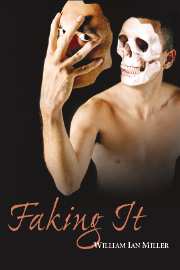Book contents
- Frontmatter
- Contents
- Acknowledgments
- 1 Introduction: Split in Two
- 2 Hypocrisy and Jesus
- 3 Antihypocrisy: Looking Bad in Order to Be Good
- 4 Virtues Naturally Immune to Hypocrisy
- 5 Naked Truth: Hey, Wanna F***?
- 6 In Divine Services and Other Ritualized Performances
- 7 Say It Like You Mean It: Mandatory Faking and Apology
- 8 Flattery and Praise
- 9 Hoist with His Own Petard
- 10 The Self, the Double, and the Sense of Self
- 11 At the Core at Last: The Primordial Jew
- 12 Passing and Wishing You Were What You Are Not
- 13 Authentic Moments with the Beautiful and Sublime?
- 14 The Alchemist: Role as Addiction
- 15 “I Love You”: Taking a Bullet versus Biting One
- 16 Boys Crying and Girls Playing Dumb
- 17 Acting Our Roles: Mimicry, Makeup, and Pills
- 18 False (Im)modesty
- 19 Caught in the Act
- Afterword
- Notes
- Works Cited
- Index
15 - “I Love You”: Taking a Bullet versus Biting One
Published online by Cambridge University Press: 04 September 2009
- Frontmatter
- Contents
- Acknowledgments
- 1 Introduction: Split in Two
- 2 Hypocrisy and Jesus
- 3 Antihypocrisy: Looking Bad in Order to Be Good
- 4 Virtues Naturally Immune to Hypocrisy
- 5 Naked Truth: Hey, Wanna F***?
- 6 In Divine Services and Other Ritualized Performances
- 7 Say It Like You Mean It: Mandatory Faking and Apology
- 8 Flattery and Praise
- 9 Hoist with His Own Petard
- 10 The Self, the Double, and the Sense of Self
- 11 At the Core at Last: The Primordial Jew
- 12 Passing and Wishing You Were What You Are Not
- 13 Authentic Moments with the Beautiful and Sublime?
- 14 The Alchemist: Role as Addiction
- 15 “I Love You”: Taking a Bullet versus Biting One
- 16 Boys Crying and Girls Playing Dumb
- 17 Acting Our Roles: Mimicry, Makeup, and Pills
- 18 False (Im)modesty
- 19 Caught in the Act
- Afterword
- Notes
- Works Cited
- Index
Summary
There is nothing quite likeTristram Shandy, the most deliciously prurient book ever written. You will find yourself returning to read it again and again, always discovering dozens of new jokes that flew by you the time before; nor will you ever cease to be amazed at the cleverness of the ones you get, how surprising they are though you have read them before and even expect the surprise. You will lose yourself in wonderment and laughter until you start worrying about how dim you are, not compared with Laurence Sterne, for you concede he has it all over you, but compared with the intelligence of the average eighteenth-century reader he was pitching his humor and wit to.
Almost nothing in all literature has quite the charm of Tristram's Uncle Toby. Toby is simplicity itself, with an idée fixe. He was a soldier, wounded in the groin at the siege of Namur (1695), and since his retirement, together with his devoted servant Corporal Trim, he has occupied his time building models of the progress of the War of Spanish Succession on his bowling lawn. Toby is at one with himself; he is, as Sterne says, his hobbyhorse (1.24). He is totally a creature of his obsession with battle, armament, fortification, and drill; he is an allegory of himself, meant to be a conventional comic character with one motivating humor or trait that informs all his behavior and conversation.
- Type
- Chapter
- Information
- Faking It , pp. 178 - 185Publisher: Cambridge University PressPrint publication year: 2003



